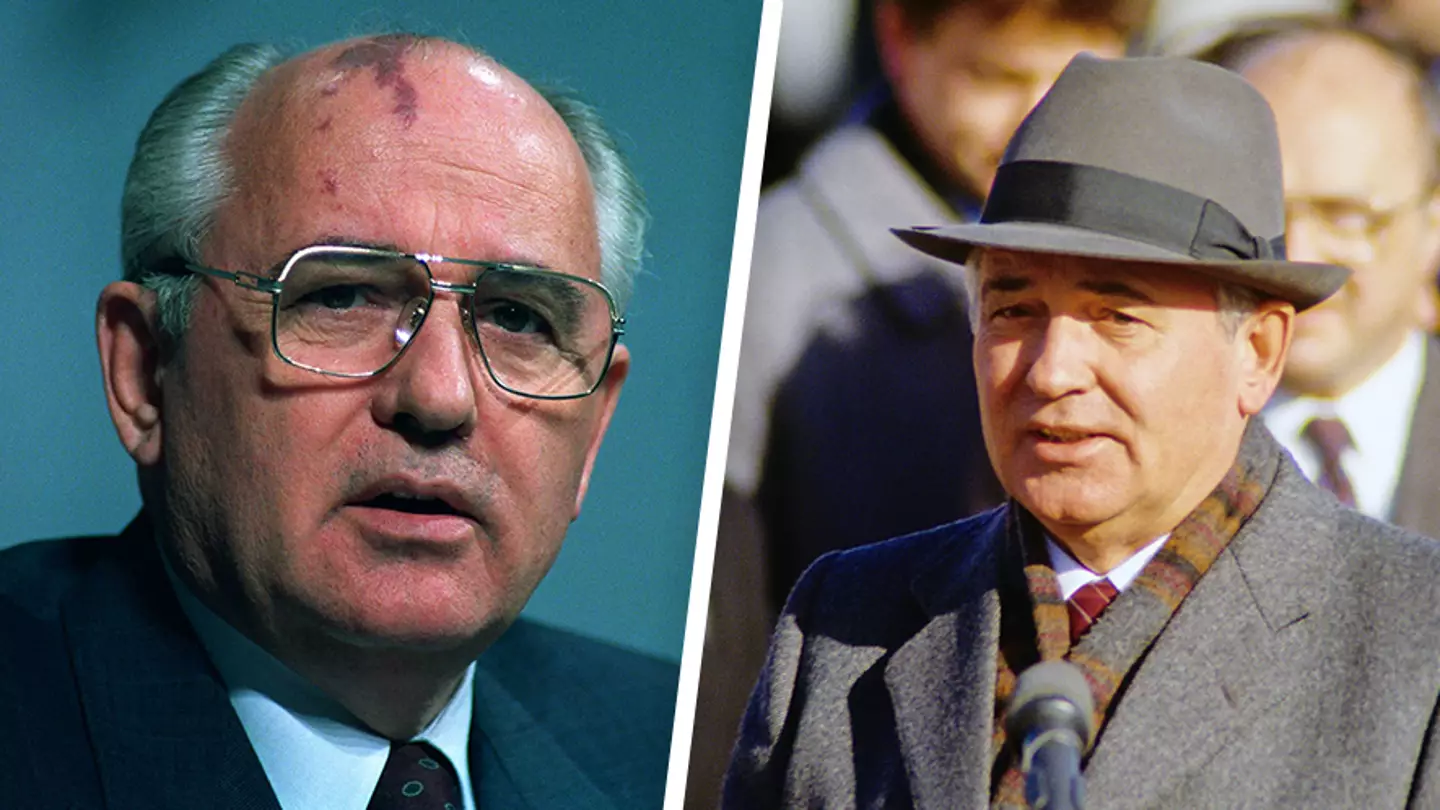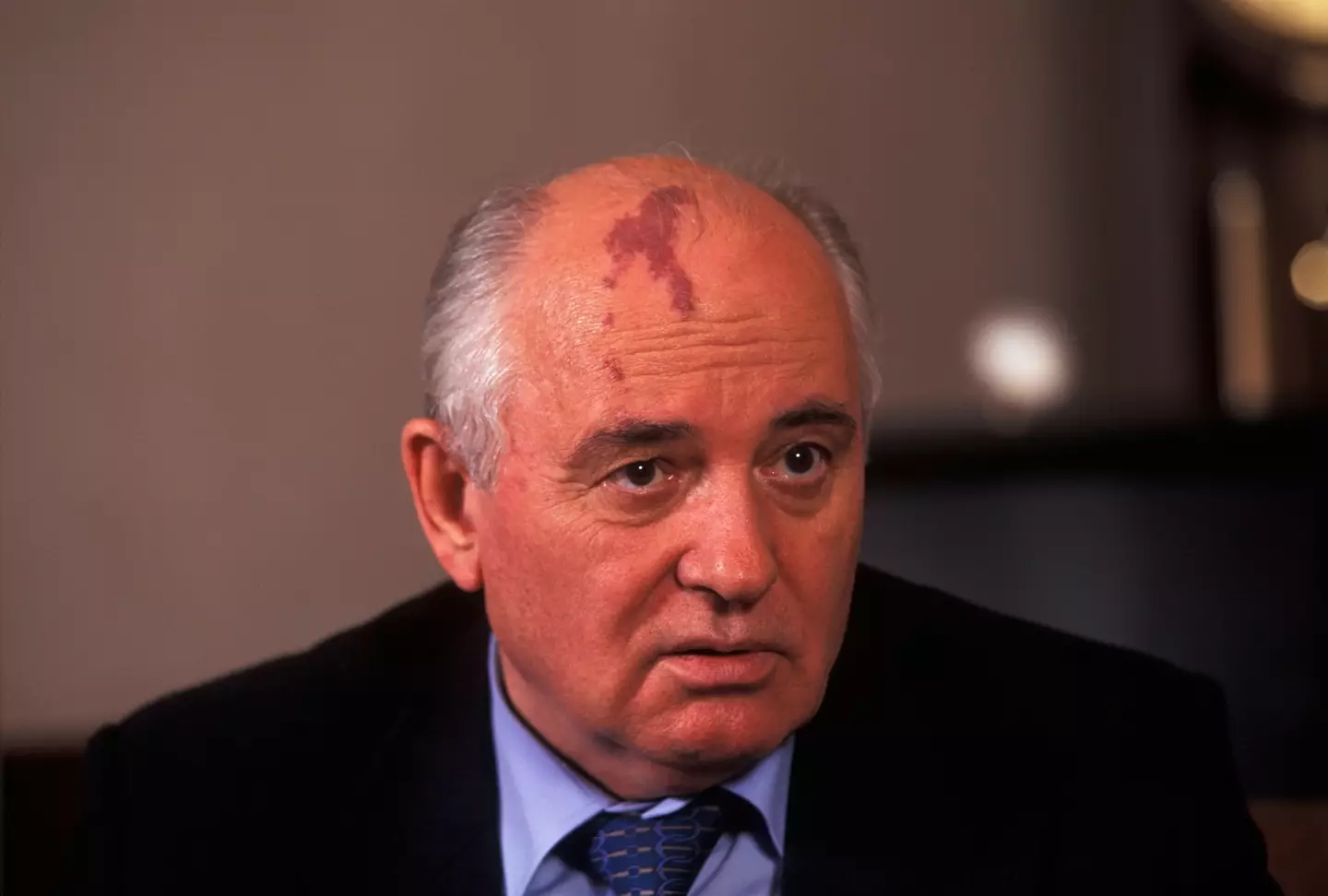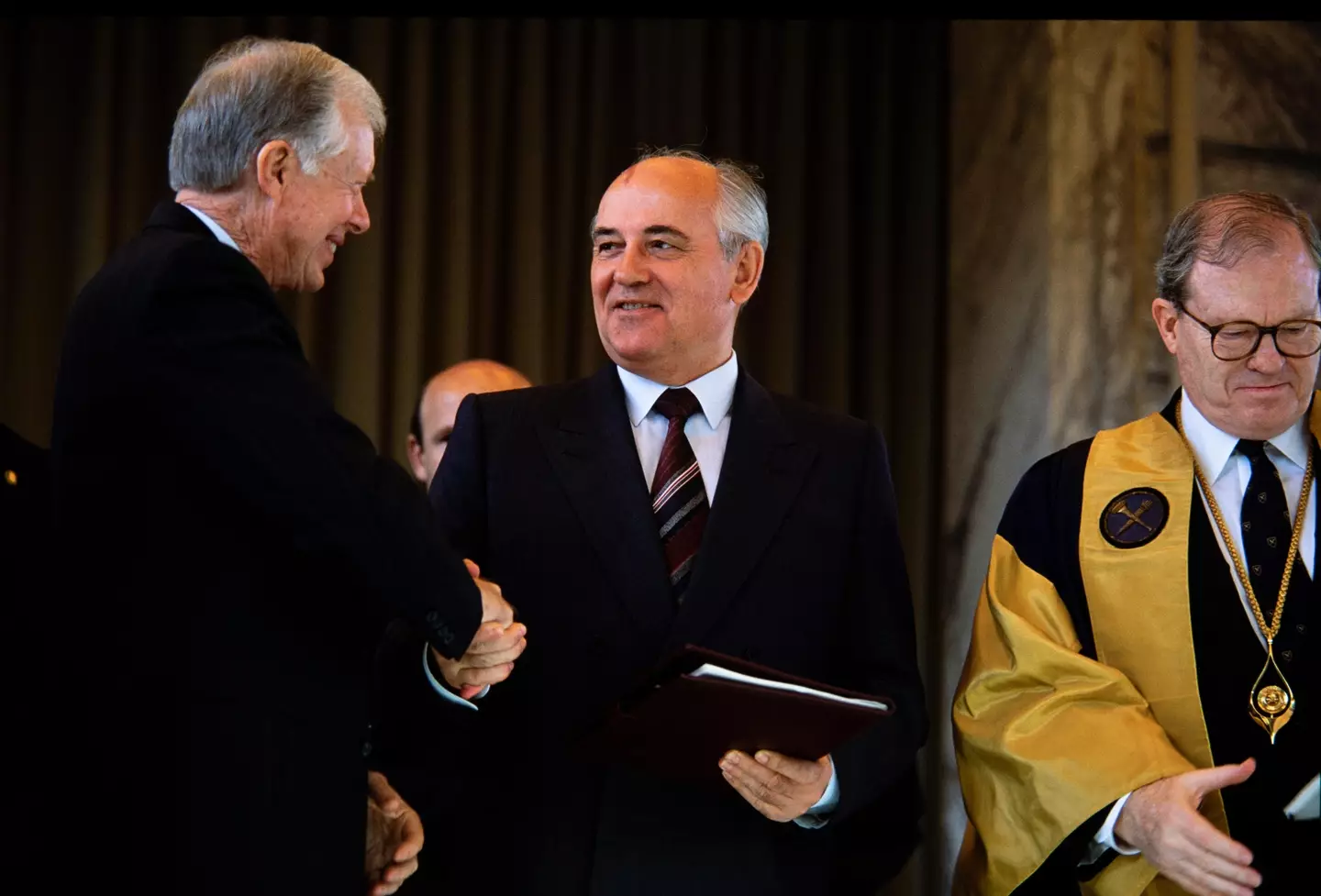
Former Soviet Union leader, Mikhail Gorbachev, has died at the age of 91.
The man who helped end the Cold War in the early 1990s had been suffering from a long illness prior to his death.
Russia’s Central Clinical Hospital said in a statement (via the Interfax news agency): “Mikhail Gorbachev passed away tonight after a serious and protracted disease."
Tass news agency said the ex-USSR boss will be buried in Moscow’s Novodevichy Cemetery 'next to his wife Raisa'.
Advert

There has been an outpouring of tributes from world leaders and figures.
Outgoing British Prime Minister Boris Johnson said in a statement: "I'm saddened to hear of the death of Gorbachev.
"I always admired the courage & integrity he showed in bringing the Cold War to a peaceful conclusion.
"In a time of Putin’s aggression in Ukraine, his tireless commitment to opening up Soviet society remains an example to us all."
European Commission President, Ursula von der Leyen, added: "Mikhail Gorbachev was a trusted and respected leader. He played a crucial role to end the Cold War and bring down the Iron Curtain.
"It opened the way for a free Europe.
"This legacy is one we will not forget."
When he was in charge, he helped create an arms reduction deal with Western nations, which helped remove the Iron Curtain that had divided Europe since the end of World War Two.

Then US-President Ronald Reagan famously stood at the Berlin Wall in West Germany and demanded for 'Mr Gorbachev [to] tear down this wall' in 1987.
Gorbachev won the Nobel Peace Prize in 1990 for organising that nuclear deal with Reagan.
The Guardian reports he spent his latter days trying to get Russia and the United States to mend their fractured diplomatic and political relationship.
He was asked back in 1992, just one year after the collapse of the USSR, what he thought of his legacy and impact on global politics.
Gorbachev told AP: "I see myself as a man who started the reforms that were necessary for the country and for Europe and the world. I am often asked, would I have started it all again if I had to repeat it? Yes, indeed.
"And with more persistence and determination."
The Guardian asked him what his biggest regret is and he replied: "The fact that I went on too long in trying to reform the Communist party.”
Topics: News
